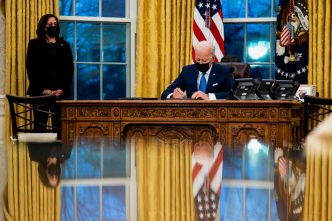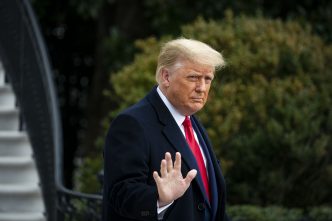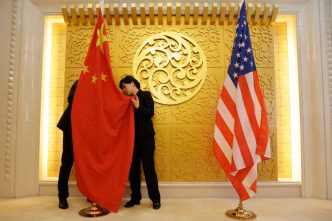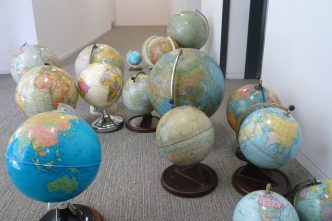Joe Biden has been president of the United States for 100 days, less than 7% of the time he was elected to serve. Still, it’s not too soon to draw some tentative conclusions about the …
Last week’s testy US–China dialogue in Alaska augurs poorly for bilateral relations. And the mounting rivalry between the two countries clearly indicates that the emerging world of multiple power centres could presage an era of …
The report issued on Friday by the US intelligence community on the murder of Saudi journalist and permanent US resident Jamal Khashoggi in October 2018 at the Saudi consulate in Istanbul, Turkey, mostly confirms what …
Joe Biden has been president of the United States for just a few weeks, but the central elements of his approach to the world are already clear: rebuilding at home, working with allies, embracing diplomacy, …
We can finally state with confidence that US President Donald Trump will leave the White House, however reluctantly, on 20 January. As his four years in office come to an end, it’s not too soon …
Two adages come to mind as I write this: ‘Don’t put all your eggs in one basket’, and ‘A chain is only as strong as its weakest link.’ Taken together, the two maxims sum up …
Assassinations are by definition significant because they involve the murder of a prominent individual for political purposes. But not all assassinations constitute turning points. World War I, for example, would likely have happened even without …
The United Nations is turning 75, and if this were a normal year, many of the world’s leaders would be set to gather in New York City to celebrate this milestone and open the annual …
Observers of US–China relations increasingly talk of a new cold war. On top of a long-running trade war, the two countries now find themselves in a destructive cycle of mutual sanctions, consulate closings and increasingly …
The global toll of the Covid-19 pandemic is enormous: more than half a million lives lost, hundreds of millions out of work and trillions of dollars of wealth destroyed. And the disease has by no …
The United States finds itself confronting several daunting challenges simultaneously. There is the Covid-19 pandemic, which has already claimed nearly 120,000 American lives and shows little sign of abating in large swaths of the country. …
Increasing global interconnection—growing cross-border flows of people, goods, energy, emails, television and radio signals, data, drugs, terrorists, weapons, carbon dioxide, food, dollars and, of course, viruses (both biological and software)—has been a defining feature of …













